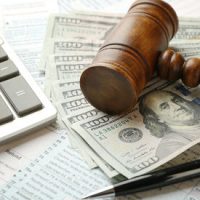Why Raiding Your IRA to Pay Off Debt is a Bad Idea

Living with debt can be extremely stressful. As experienced Plantation bankruptcy attorneys, we have heard clients describe sleepless nights as they mull over their debts. The fear of going bankrupt never really leaves them, and this stress is compounded by constant calls from debt collectors.
Many people will do almost anything to get out of debt, and this includes raiding their Individual Retirement Account (IRA) or 401(k). Unfortunately, using retirement funds is a serious mistake. This money has been earmarked for retirement, not debt repayment, and you could be hamstringing your financial future.
Using Retirement Savings Does Not Fix the Underlying Problem
The problem that led you into debt must be addressed for you to move on productively. Typically, people get into debt because they spend more than they bring in. Now, there might be very legitimate reasons for doing so. For example, you could have fallen ill and needed medical treatment. Even people with insurance often incur tens of thousands of dollars in medical bills after a serious illness. Or you might have lost your job, which temporarily reduced your income.
However, if you are overspending every month, then you need to learn how to live within your means. This requires earning more income or cutting your expenses. Raiding your retirement funds does not help you fix the underlying issue.
You Will Probably Pay a Penalty & Taxes
Contributions to a traditional IRA or 401(k) are usually on a pre-tax basis. When you withdraw, you must pay income taxes on the amount.
Unfortunately, withdrawing before age 59 ½ can also lead to a 10% early withdrawal penalty. There are some exceptions that might allow you to make a withdrawal penalty-free, but they are more limited than you might realize. This 10% can seriously reduce the amount of money you can use for debt repayment.
You might be tempted to take a penalty-free loan from an IRA. However, if you don’t pay the money back in time, you’ll get hit with the penalty. As a loan reduction technique, using retirement funds rarely makes sense.
Bankruptcy is Often a Better Option
Look at your debts. If you have credit card debt, personal loans, or medical bills, you can usually discharge these debts in bankruptcy. A Chapter 7 bankruptcy is a quick and easy way to make this type of debt disappear.
Other debts are nondischargeable, such as child support or alimony. However, a Chapter 13 bankruptcy might give you breathing room to catch up on what you owe. With this bankruptcy, you come up with a repayment plan that helps protect you from creditor harassment or wage garnishment.
If you owe payments on a secured debt like your home, a Chapter 13 could also make sense. You will give yourself extra time to catch up on the missed payments.
Call Us Before Touching Your Retirement
Nowack & Olson has helped more than 20,000 people tackle their debts in an orderly manner. It truly is possible to become debt free!
Contact our Plantation Chapter 7 bankruptcy attorneys today to schedule a free consultation.
